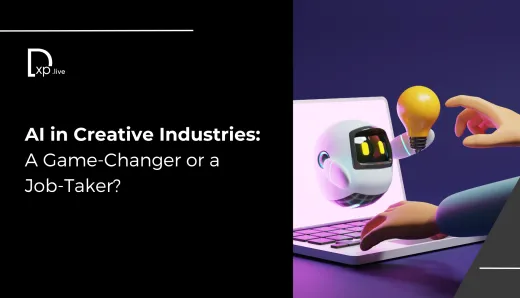Google's AI Revolution: The New SEO Landscape and How to Navigate It

Google’s recent AI update is not just another tweak to its search algorithm; it’s a transformative shift that is redefining the SEO landscape. The introduction of the "AI Overview" at the top of search results is a clear indication that Google is doubling down on its commitment to artificial intelligence, signaling a new era for digital marketers and SEO professionals. While some may view this change with trepidation, others see it as an opportunity to evolve and adapt. Regardless of where you stand, one thing is certain: the rules of the game have changed, and staying relevant in this new environment requires a fresh set of skills.
What is SGE?
Search Generative Experience (SGE) marks the beginning of Google’s evolution toward integrating generative AI into its search engine. This transformation is reshaping the search results page, offering a more streamlined and intuitive user interface designed to help users extract more value from their searches.
These AI-powered enhancements aim to elevate the user experience by making content easier to understand while also redefining the landscape of digital advertising. In this article, we explore and discuss what Google's new AI update mean for the online presence of your business.
The AI Overview: A New Reality for Search
The "AI Overview" that now appears at the top of Google’s search results represents a significant shift in how information is presented to users. This feature provides a summarized answer to search queries, often generated by AI models that pull information from various sources across the web. While this can enhance the user experience by delivering quick and concise answers, it also has profound implications for websites that rely on organic search traffic.
One of the most immediate effects of the AI Overview is that it pushes traditional organic listings further down the page. For years, SEO experts have worked tirelessly to optimize content, build backlinks, and fine-tune technical aspects of their websites to secure that coveted top spot on Google’s search results. With the advent of AI Overview, that top spot has effectively been usurped by an AI-generated summary, leaving organic listings with less visibility and, consequently, less traffic.
The Impact on SEO: A Double-Edged Sword
The impact of Google’s shift to AI on SEO can be seen as a double-edged sword. On the one hand, it presents challenges for those who have relied heavily on traditional SEO tactics to drive traffic. On the other hand, it offers new opportunities for those willing to adapt and embrace the changes.
One of the primary challenges is the reduction in click-through rates (CTR) for organic listings. As users are presented with a summarized answer at the top of the page, they may be less likely to scroll down and click on individual search results. This means that even if your website ranks on the first page, you may see a decline in traffic as users find what they need without leaving the search engine results page (SERP).
Moreover, the AI Overview often pulls content from multiple sources, potentially diluting the impact of any single piece of content. For example, if your website is referenced in an AI-generated summary, users may not feel the need to visit your site if they can get the information they need directly from the AI Overview. This could lead to a decrease in direct website traffic and, by extension, a reduction in potential leads or sales.
However, it’s not all doom and gloom. The rise of AI in search also opens up new opportunities for those who are willing to innovate. For instance, optimizing for AI-generated summaries requires a different approach to content creation. Instead of focusing solely on keywords and backlinks, content creators will need to prioritize clarity, conciseness, and comprehensiveness. This means creating content that is not only informative but also easily digestible by AI models.
Additionally, the AI Overview can serve as a source of valuable insights for SEO professionals. By analyzing which pieces of content are being referenced in the AI summaries, marketers can gain a better understanding of what Google’s AI deems as authoritative and valuable. This can inform future content strategies and help businesses stay ahead of the curve.
Adapting to the New SEO Landscape
To succeed in this new SEO landscape, businesses and marketers need to adopt a more holistic approach to content creation and optimization. Here are some strategies to consider:
- Focus on E-A-T (Expertise, Authoritativeness, Trustworthiness): As AI becomes more integrated into search, Google’s focus on E-A-T is likely to intensify. Content that demonstrates expertise, authoritativeness, and trustworthiness is more likely to be featured in AI summaries. This means that businesses need to invest in high-quality content that is well-researched, accurate, and written by credible authors.
- Embrace Structured Data: Structured data, such as schema markup, helps search engines understand the content on your website. By implementing structured data, you can increase the chances of your content being included in AI-generated summaries. This can also improve your visibility in other search features, such as rich snippets and knowledge panels.
- Create Comprehensive Content Hubs: Instead of focusing on individual blog posts or articles, consider creating comprehensive content hubs that cover a topic in depth. These hubs can serve as a go-to resource for both users and AI models, increasing the likelihood that your content will be referenced in AI summaries.
- Leverage Multimedia Content: AI models are not limited to text-based content; they can also analyze and summarize multimedia content, such as videos and podcasts. By incorporating multimedia into your content strategy, you can tap into a broader audience and increase your chances of being featured in AI Overviews.
- Monitor and Adapt: The SEO landscape is constantly evolving, and staying ahead of the curve requires continuous monitoring and adaptation. Regularly analyze your website’s performance, track changes in search rankings, and adjust your strategies accordingly. This proactive approach will help you stay competitive in the face of ongoing AI advancements.
The Broader Implications for Digital Marketing
Google’s shift to AI is not just a game-changer for SEO; it has broader implications for the entire digital marketing ecosystem. As AI becomes more prevalent in search, it is likely to influence other aspects of digital marketing, including content marketing, social media, and paid advertising.
For content marketing, the rise of AI means that quality will trump quantity. Rather than churning out numerous blog posts or articles, businesses will need to focus on creating fewer, but more impactful, pieces of content. This content should be tailored to meet the needs of both users and AI models, providing clear and concise answers to common questions.
In the realm of social media, AI could play a role in shaping content discovery and engagement. As social media platforms increasingly integrate AI into their algorithms, marketers will need to adapt their strategies to ensure that their content is surfaced to the right audiences. This could involve leveraging AI-driven tools to analyze audience behavior, optimize posting schedules, and create personalized content.
Paid advertising is another area that could be impacted by Google’s AI advancements. As AI-generated summaries become more prominent in search results, businesses may need to adjust their paid search strategies to ensure that their ads remain visible and relevant. This could involve experimenting with different ad formats, targeting options, and bidding strategies to maximize ROI.
Conclusion: Embrace the Change
Google’s shift to AI represents a significant evolution in the way we approach SEO and digital marketing. While it may disrupt traditional tactics and force marketers to rethink their strategies, it also presents exciting opportunities for innovation and growth. By embracing the change, adopting new skills, and staying ahead of the curve, businesses can not only survive but thrive in this new AI-driven landscape.
As with any major shift, there will be winners and losers. Those who cling to outdated practices may find themselves struggling to keep up, while those who are willing to adapt and evolve will be well-positioned to capitalize on the opportunities that AI presents. In the end, the key to success lies in staying flexible, being open to change, and continually learning and improving.
So, whether you love it or hate it, Google’s AI update is here to stay. The question is: are you ready to play ball?




